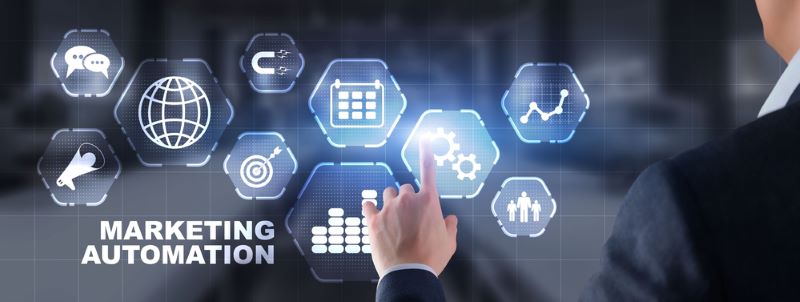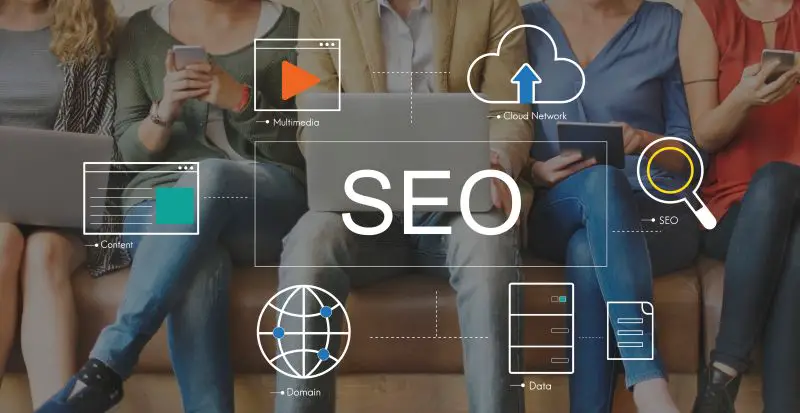
Imagine your marketing campaigns running seamlessly 24/7, reaching the right customers at the perfect time, all without you lifting a finger. Sounds like a dream, right? Well, with artificial intelligence (AI) and automation, it’s not just a possibility—it’s a reality waiting to be tapped into.
In this article, we’ll dive deep into how AI and automation can revolutionise your marketing strategy. From personalised customer experiences to data-driven decisions, discover the tools and techniques that can put your business on the fast track to success.
Stick around because, by the end of this article, you’ll not only understand the immense potential of AI in marketing but also know exactly how to implement these cutting-edge tools to give your business a competitive edge. Ready to transform your marketing game? Let’s get started!
Artificial Intelligence (AI) and automation have rapidly become integral to modern marketing strategies. But what exactly are they, and how can they benefit your business? At its core, AI refers to the simulation of human intelligence in machines designed to think and learn. In marketing, AI can analyse vast amounts of data, predict customer behaviour, and personalise experiences at a scale unattainable by humans alone. Automation, on the other hand, involves using technology to perform tasks with minimal human intervention, streamlining repetitive processes to save time and reduce errors.
One of the most compelling advantages of AI in marketing is its ability to deliver personalised experiences. Traditional marketing often relies on broad segmentation, but AI can drill down to the individual level. By analysing data from various touchpoints—such as browsing history, purchase patterns, and social media activity—AI can create highly personalised content and offers.
For example, Amazon uses AI to recommend products based on previous purchases and browsing behaviour. This not only enhances the customer experience but also increases the likelihood of conversions. Similarly, Netflix uses AI to recommend shows and movies tailored to individual preferences, keeping users engaged and subscribed.
AI’s ability to analyse massive datasets quickly and accurately provides marketers with actionable insights. Predictive analytics, a key feature of AI, can forecast future customer behaviour based on historical data. This allows businesses to anticipate trends, identify potential issues before they arise, and make informed decisions.
Consider the case of Coca-Cola, which uses AI to analyse social media data and consumer feedback to predict which new flavours will be successful. This data-driven approach enables the company to stay ahead of the competition and meet consumer demands more effectively.
Customer service is another area where AI is making significant strides. Chatbots and virtual assistants powered by AI can handle a large volume of customer inquiries in real time, providing instant support and freeing up human agents to handle more complex issues. These AI-driven tools can answer frequently asked questions, guide customers through troubleshooting processes, and even assist with making purchases.
For instance, Sephora’s chatbot on Facebook Messenger can help customers find products, check availability, and book appointments. This not only improves the customer experience but also increases efficiency and reduces operational costs.
AI is revolutionising digital advertising by optimising ad campaigns for better performance. Programmatic advertising uses AI to buy and place ads in real time, targeting the right audience at the right time with the right message. This automation ensures that ad spend is used efficiently, maximising ROI.
Google and Facebook, for example, offer AI-powered advertising platforms that use machine learning algorithms to optimise ad placements and bidding strategies. These platforms analyse user behaviour and engagement to continuously improve ad performance, delivering higher click-through rates and conversions.
Content is king in digital marketing, but consistently creating high-quality content can be challenging. AI-powered tools are now capable of generating content, from blog posts and social media updates to personalised email campaigns. These tools can analyse existing content to identify what resonates with audiences and create new content that is both relevant and engaging.
Tools like Jasper (formerly Jarvis) use AI to write articles, social media posts, and even ad copy. While human oversight is still necessary to ensure quality and coherence, AI can significantly speed up the content creation process and reduce costs.
Email marketing remains a powerful tool for engaging with customers, and AI enhances its effectiveness. AI can analyse subscriber behaviour to determine the best times to send emails, the optimal frequency of communication, and the types of content that resonate most. This ensures that emails are not only opened but also acted upon.
For example, AI can segment email lists more precisely than traditional methods, ensuring that each recipient receives content that is highly relevant to their interests and behaviours. This level of personalisation can lead to higher open rates, click-through rates, and conversions.
Lead generation and scoring are critical components of any marketing strategy. AI can identify potential leads by analysing patterns in data, such as website visits, social media interactions, and email responses. Once leads are identified, AI can score them based on their likelihood to convert, allowing sales teams to prioritise their efforts on the most promising prospects.
Companies like HubSpot use AI to automate lead scoring, ensuring that sales teams can focus on leads that are most likely to convert, thereby increasing efficiency and sales effectiveness.
Integrating AI and automation into your marketing strategy doesn’t happen overnight, but the benefits are well worth the investment. Start by identifying areas where AI can have the most significant impact, such as customer service, content creation, or data analysis. Implement AI tools gradually, ensuring that your team is trained and comfortable with the new technology.
For instance, you might begin with an AI-powered chatbot to handle customer inquiries on your website. As your team becomes more adept at using AI, you can expand its use to other areas, such as email marketing automation or predictive analytics for campaign planning.
While AI and automation offer numerous benefits, they also come with challenges. Data privacy and security are paramount, as AI relies on vast amounts of data to function effectively. Ensuring compliance with regulations, such as GDPR, is essential to maintain customer trust. Additionally, the initial cost of AI tools and the need for ongoing maintenance and updates can be significant.
Another consideration is the need for human oversight. AI can automate many tasks, but human creativity and strategic thinking remain irreplaceable. A balanced approach, where AI handles repetitive tasks, and humans focus on strategy and creativity, is key to maximising the benefits of AI in marketing.
The future of AI in marketing is bright, with continuous advancements promising even greater capabilities. As AI technology evolves, it will become more accessible to businesses of all sizes, not just large corporations. This democratisation of AI will enable small and medium-sized enterprises to compete on a level playing field, leveraging AI to enhance their marketing efforts.
Moreover, the integration of AI with other emerging technologies, such as augmented reality (AR) and virtual reality (VR), will open up new possibilities for immersive and interactive marketing experiences. Imagine customers being able to virtually try on clothes or test drive cars from the comfort of their homes, guided by AI-powered assistants.
In conclusion, AI and automation are transforming the marketing landscape, offering unprecedented opportunities for businesses to engage with customers, optimise campaigns, and drive growth. By embracing these technologies, new business owners can not only streamline their marketing efforts but also gain a competitive edge in an increasingly digital world. Stay tuned as we delve into practical steps and tools to implement AI and automation in your marketing strategy, ensuring you are well-equipped to navigate this exciting frontier.
Now that you’ve discovered the incredible potential of AI and automation in transforming your marketing strategy, why stop here? Dive deeper into the latest trends and tips by checking out our blog for more valuable content like this. If you found this article helpful, share it with your network to spread the knowledge!
And remember, if you need expert assistance to kickstart your digital marketing journey, don’t hesitate to get in touch. We’re here to help you harness the power of AI and automation to grow your business. Let’s take your marketing to the next level together!
You may also like: How To Harness The Power Of New Trends When Marketing Your Business
Image source: Depositphotos.com

Generating leads is a crucial...

Welcome to the Future of...

It is evident that social...